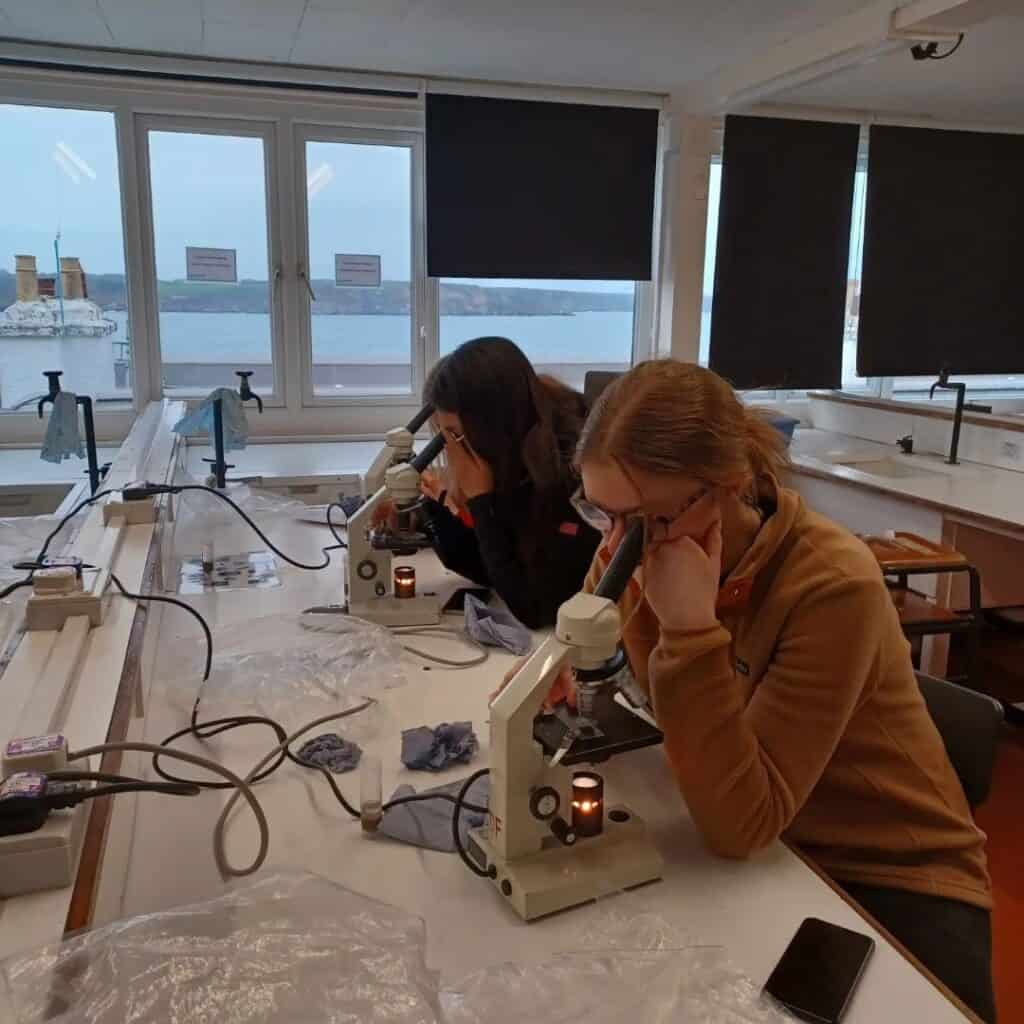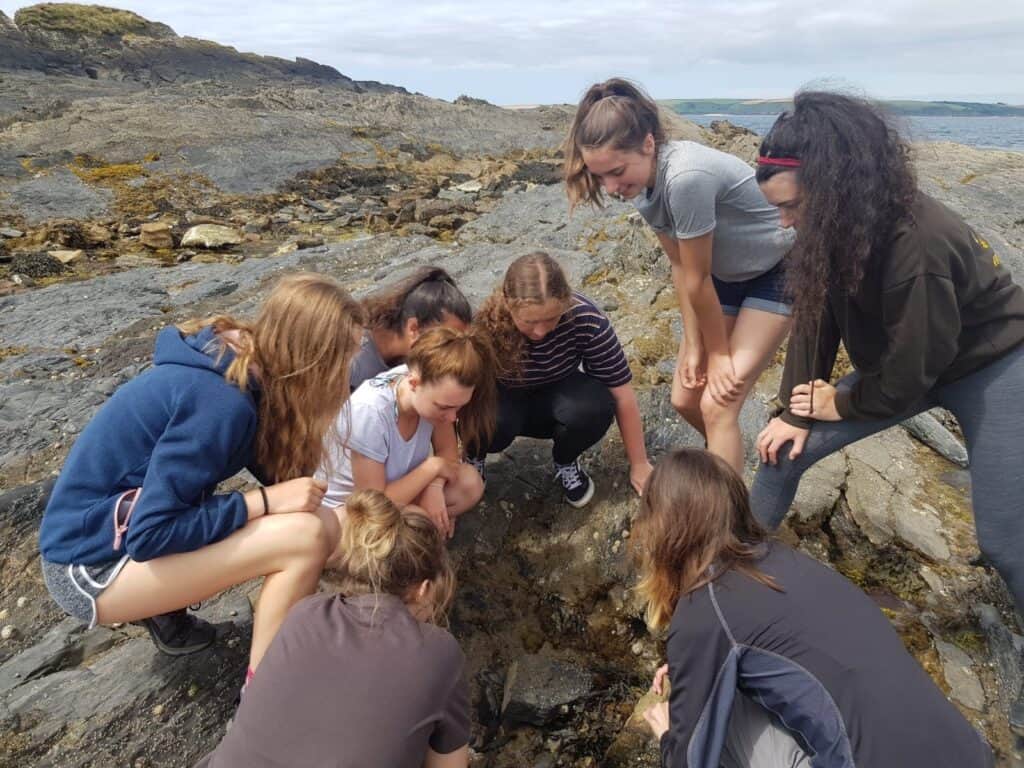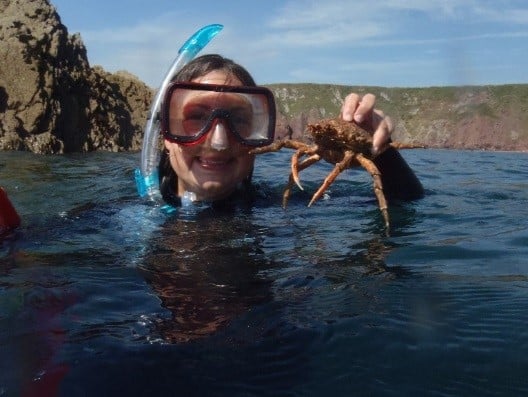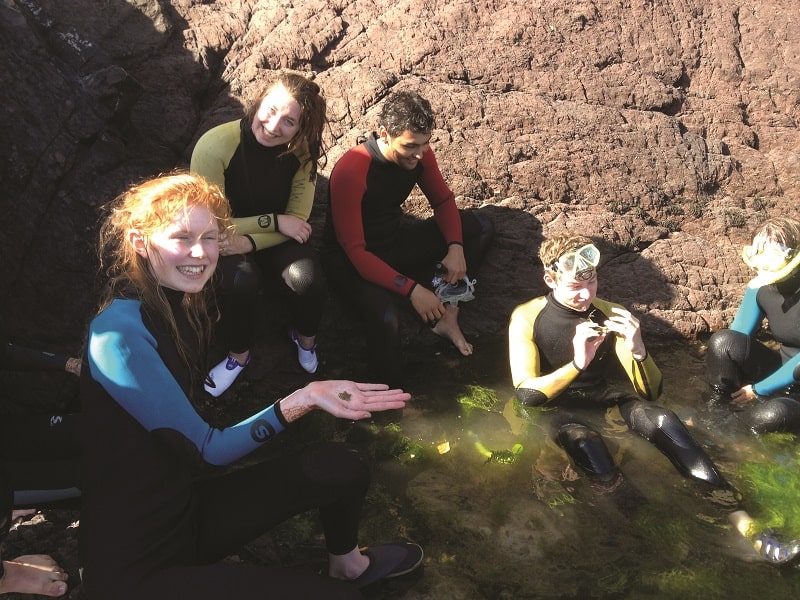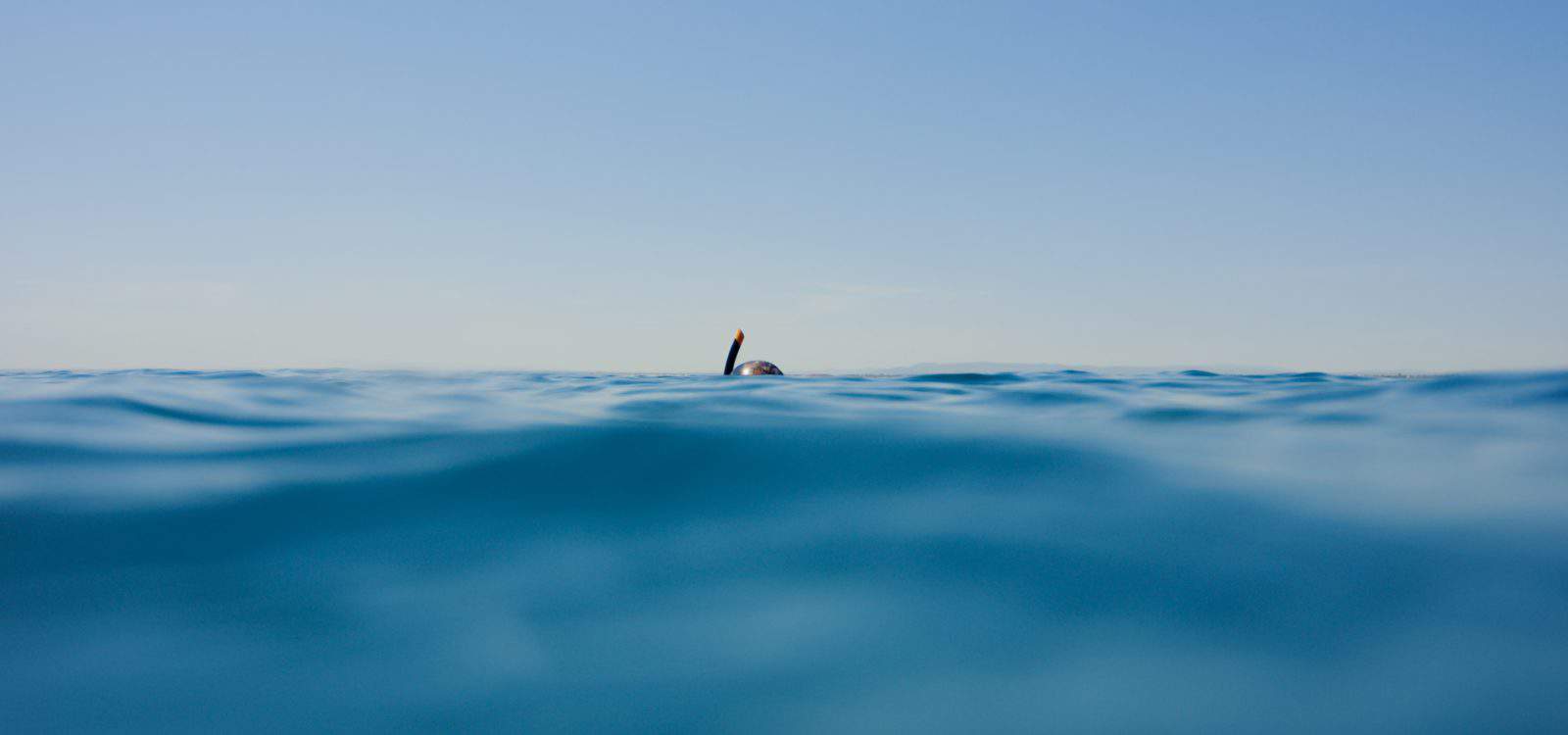We speak to the Marine Biological Association about our Marine Science Camps and the benefits of hands-on experience for future career pathways.
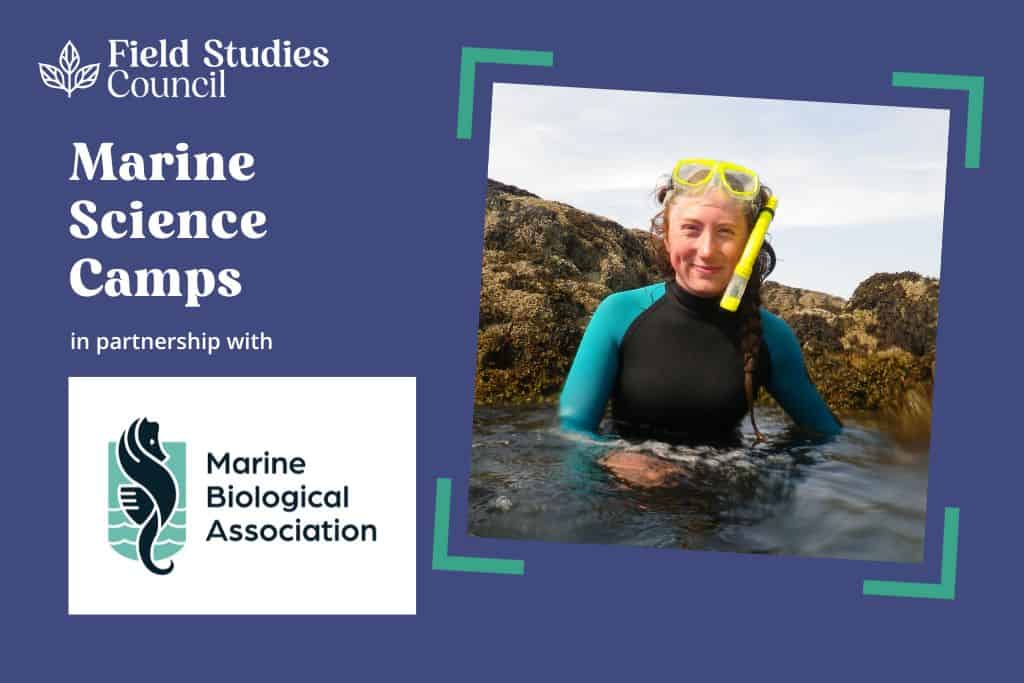
Our Marine Science Camps are a fantastic opportunity for anyone aged 16-24 with an interest in learning more about Marine Biology. The residential takes place at our marine field centres at Slapton Ley in Devon and Dale Fort in Pembrokeshire. They offer easy access to the UK coastline and marine wildlife.
Participants gain valuable experience in a whole host of marine research techniques and develop unique skills in marine conservation, species identification and ecosystem surveys.
For more than seven years, the Marine Biological Association (MBA) has teamed up with our expert tutors in offering budding marine biologists a chance to connect with experts in their field.
We spoke to Cathy Harshaw, Training and Events Manager for the MBA to give us an insight into the organisation and how working together with Field Studies Council offers an ideal learning experience for young marine biologists.
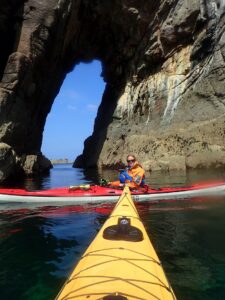
Cathy, what is your role within the organisation?
I am the Training and Events Manager, so I get to organise all of the training courses, conferences and other events we run. It’s a really varied role and means I get to work with lots of different people on a day-to-day basis.
Could you tell us a little bit more about the MBA and the work you do?
The Marine Biological Association is one of the world’s longest-running societies dedicated to promoting research into our ocean and the life it supports.
A learned society is an organization that promotes and advances the knowledge and understanding of a particular field of study or academic discipline. We do this by bringing together researchers, scholars, and other experts in the field to share their knowledge and expertise, exchange ideas, collaborate on research projects, and to foster a community who share a common interest and dedication to the pursuit of knowledge.
As a professional body we support our members by providing professional development opportunities and training including, organising conferences, seminars and workshops. We also work to influence policy decisions giving a voice to our members to address important issues related to the field.
We publish a journal and a quarterly magazine and we have a world-class research laboratory where researchers work to understand more about the ocean in three main areas, coastal ecology, the marine microbiome and ocean biology.
We have also pioneered the management and provision of data and information through a number of projects such as the National Marine Biological Library (NMBL), the Marine Life Information Network (MarLIN) and the UK Archive for Marine Species and Habitats Data (DASSH).
All of those attending our Marine Science and Snorkelling residentials are signed up to become MBA members. What are the benefits of becoming a member?
Joining the Association shows real commitment to the discipline, and we always encourage our young members and students to add to their CV that they belong to a Learned Society.
For those who are under 18, they will become Young Marine Biologist Members, and those over 18 when they attend the course will become Student Members. While the benefits are slightly different for each category, everyone gets to become part of a dynamic global community made up of people from over 50 countries.
Young Marine Biologist Members get the opportunity to join our monthly online Young Marine Biologist Club where they get to learn from and interact with a range of scientists and science communicators. Each month the club focuses on a different topic and the recordings are available to watch on MyMBA, the online Members areas, if you can’t make it in person. All categories also receive our quarterly magazine, The Marine Biologist. Student members get a printed copy and our Young Marine Biologists can access it online, including access to all the back catalogue. Our Young Marine Biologist Members also get free access to the National Marine Aquarium.
Student Members get a few extra benefits including the ability to apply for student travel bursaries, discounts on MBA training courses and events and access to the MBA Mentoring Scheme. Access to MBA online member communities and free gifts are also benefits the attendees will get.
Why do you think our Marine Science Camps are a great opportunity for those interested in studying Marine Science?
The Marine Science Camps are an excellent opportunity for young people to get hands on experience of the field work side of being a Marine Biologist as well as learning lots of cool stuff about life in our Ocean. I feel that these camps are a unique opportunity to learn key Marine Biology specific skills and at the same time allow the young people to see the reality of working in the sector. It also allows them to get a better idea of what they might want to study at university, whether that be Marine Biology focused or broader. It is also an excellent opportunity to meet other like-minded peers and make connections with others on a similar journey to them.
How important is field experience on the CV of young marine biologists?
Field experience is very difficult to get given the nature of the field, therefore it’s not essential to those wishing to go on to study Marine Biology, however it can really enhance a young person’s CV. Field experience can set a young person’s CV apart and not only does it demonstrate relevant skills, but it also shows that a young person has real-life experience of working in what can be a challenging environment. With CVs and university applications, you are always looking for the things that set you apart and this sort of field experience is one of those things.
For all of the budding marine biologists reading this, what would be the best piece of advice you can offer them for the future?
The best piece of advice I can give is to work hard, seek out opportunities, remember the path to your dream career may not look like you think it will and remain flexible. What it means to be a Marine Biologist is really varied and I think many of us think it will look one way only to find out there are so many other options and sometimes we find ourselves doing something different to what we imagined and loving it. So I would say follow your passion, work hard (I know I’ve said it twice but it bears repeating) and enjoy the journey.
Each Marine Science Camp is attended by a student mentor from the MBA. This person will be someone who is already studying to become a marine biologist. Student mentors are there to support Field Studies Council staff and offer participants the chance to find out more from someone who is already in higher education. By attending our marine science camps, student mentors also have the opportunity to broaden their own knowledge and experience.
We took the opportunity to speak with Isobel Rowe who attended our Marine Science Camp at Dale Fort in April 2023 as a student mentor to find out more about her experience.
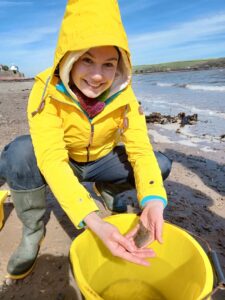
Isobel, what subject are you currently studying?
MRes Marine Biology at the University of Plymouth.
How long have you been a member/associated with the MBA?
Since 2019 I have been a student member. I joined when I started my undergraduate BSc Marine Biology degree at the University of Plymouth, as it was recommended as a fantastic resource and way of keeping up to date with cutting-edge Marine Biology research.
Why do you think our Marine Science Camps are a great opportunity for those interested in studying Marine Science?
I think they are a fantastic introduction to different aspects of marine science that you may not have necessarily realised or thought about before. They are also a great insight into the way you approach science at university, being curious and asking questions about why things are the way they are in the natural world. Alongside engaging with people of similar interests!
What did you gain from supporting our staff at our Marine Science Camp?
From my time at Dale Fort, I gained confidence in applying what I had learnt at university, and using leadership skills to help guide the attendees through the different activities. I also gained awareness of how much my own experiences and outlook can be a valuable resource to those starting out their journey in marine science. As a result of my time with the Field Studies Council, I am now considering a career in science-related outreach and teaching!
What did you enjoy most about your time with us?
I loved my time with the team at Dale Fort! Being surrounded by like-minded, enthusiastic people with a drive to teach, learn and get excited about our natural world was such a privilege. A highlight was definitely the trip to Skomer Island to see the first puffins landing of this year’s breeding season!
To all of the budding marine biologists reading this, what would be the best advice you can offer them for the future?
Be curious, find out more about the things that interest you. What research is being done at the moment, who is leading this research? Knowledge is power and it helps lead you to exciting opportunities and like-minded people! But most importantly, what is it about marine biology that gets you excited, what is your passion? Use that as your driving force to lead you on in your journey to become a marine biologist!
What participants love most about our Marine Science Camps are:
“Meeting like-minded people, learning about the marine environment, and discovering how I can contribute to its protection.”
Feedback from a previous participant who attended our Marine Science Camp
“Learning new skills snorkelling and learning about new creatures”
Feedback from a previous participant who attended our Snorkelling for Marine Biology Camp
“Learning about marine biology and interacting with experts in the field.”
Feedback from a previous participant who attended our Marine Science Camp
Our partnership with the MBA has proved invaluable in enabling us to offer the very best in Marine Biology fieldwork for young people. Combining the expertise of our tutors, the locations of our marine-based field centres and the MBA’s connections and knowledge of the industry offers an exciting and unforgettable package for those interested in the fascinating world of marine biology.
Our Marine Science Camps are also eligible for the residential section of The Duke of Edinburgh Gold Award.
